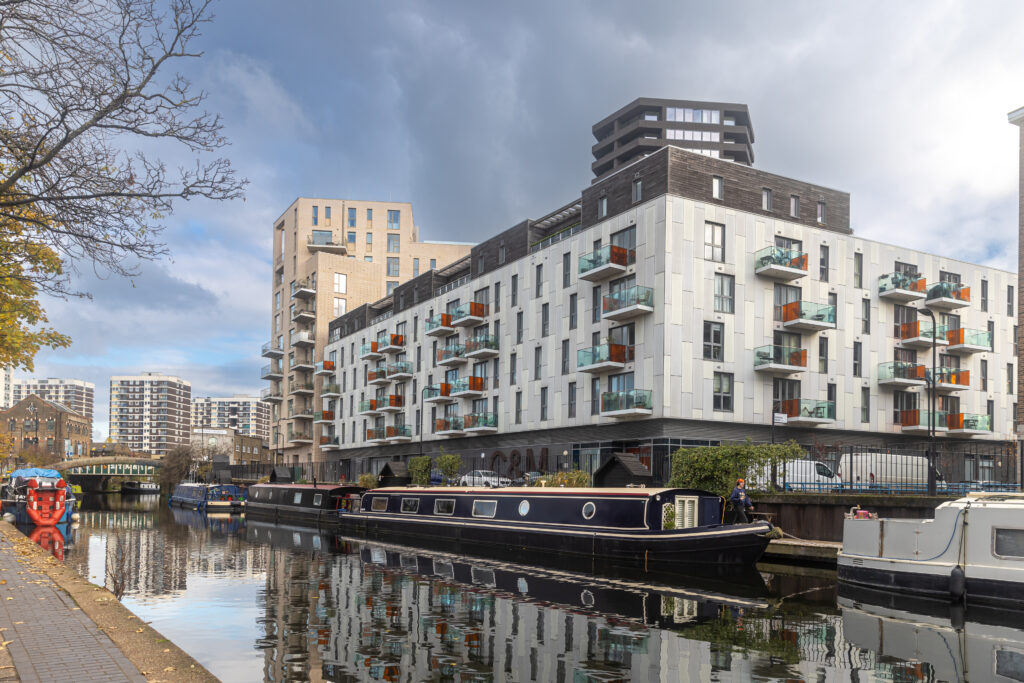How Proposed Changes to Leasehold Reform May Impact Freeholders

Sinead Campbell from London Flats Insurance looks at how the proposed changes to Leasehold reform may impact you.
Much of the discussion around the Leasehold Reform (Ground Rent) Act 2022 has been focussed on the effects for current leaseholders.
Obviously, the reforms have been brought in to increase protections for those living in leasehold properties (around 20% of UK housing stock) and they have been welcomed.
But the effect of the reforms on current freeholders of leasehold properties has been kept from the spotlight. It may be natural to assume that owners of large residential blocks are more than financially stable, but these legislative changes will have huge effects regardless. Here we’ll be discussing how those effects may impact on current freeholders.
An Outline of the Changes
In January 2022, Michael Gove (the Secretary of State for Levelling Up, Housing and Communities) ordered an inquiry into the building’s insurance market. In May 2022, the Financial Conduct Authority announced that they would be collecting data on ‘fair value’ for leaseholders and it’s this review of the market that Mr Gove then responded to in writing and across several interviews and speeches before laying out the new proposals.
The review found that almost a third of the cost of insurance premiums could be made up of commission and fees (inflated by unscrupulous freeholders agreeing to higher premiums in return for a share of the brokers’ commissions) and that service charge demands were not transparent enough for this to be easily spotted by leaseholders.
In his letter to the FCA in response to their findings, Michael Gove said:
“I will take action to ban managing agents, landlords and freeholders from taking commissions and other payments when they take out buildings insurance, replacing such payments with more transparent fees. I will press insurance firms, managing agents, landlords and freeholders to change their practices as a matter of priority.
I will also arm leaseholders with more information to enable them to better scrutinise their insurance costs, while also ensuring that leaseholders are not subject to unjustified legal costs and that they can claim their legal costs back from their landlord.”
Under the new proposals, it should also be far more financially achievable for millions of families in leasehold flats to buy their property outright before the next election. Owning the freehold would mean that residents could avoid paying expensive ground rents and management fees- a welcome change, especially given the current cost of living crisis. (please make sure to do your research before buying your freehold as every case can be different).
Plans also included scrapping leasehold laws that prevent some flat owners from buying their freehold as well as making it easier for leaseholders to come together and own their properties under a common ownership model.
Leaseholders would also be able to buy out the ground rent without extending their lease first (which currently adds another layer of expense and difficulty).
Another aspect to the changes refers to fire risk remediation works. Leaseholders may no longer need to worry about covering the cost of these works, including any changes to their current cladding. Responsibility would instead lie with freeholders and developers- a point that has been in contention since the Grenfell tragedy in 2017.
On the 30th of January 23, Richard Goodman (Director-General of Safer and Greener Buildings) wrote to developers and provided them with a legally binding contract for them to sign. The agreement is legally enforceable and means that homebuilders must fix all buildings over 11 metres in height that they have played a role in developing or refurbishing within the last 30 years (in England). They will be expected to pay for life-critical fire safety repairs and to reimburse taxpayers where public money has been used to fix unsafe buildings.
What Has Come into Force So Far?
From the 30th June 2022, Ground Rent obligations were made illegal for all new leases granted in England and Wales, reducing ground rent charges to no more than an annual ‘peppercorn’ payment (a peppercorn is a metaphor for a very small cash payment made to satisfy the needs of a contract- usually this will be £1 or less). It’s expected that most landlords will opt to charge nothing, rather than going to the trouble of charging a tiny amount.
Ground rent was also abolished for lease extensions, so from the date that the existing term expires and the new term takes effect, the ground rent will become zero. Since the 1st April 2023, the rules also now apply to retirement properties.
The Act also bans landlords from charging administration fees for collecting a peppercorn rent, preventing freeholders from charging £1 for the Ground rent but for an extortionate ‘admin fee’.
How freeholders will be impacted?
For freeholders, the act effectively reduces their income stream. For long leases (of 21 years or more) granted on or after the 30th June 2022, they will no longer be able to charge annual ground rents.
Freeholders have the option to request a ‘peppercorn’ ground rent payment, but they cannot charge an administration fee. Therefore, it’s unlikely that many freeholders will go through the trouble of requesting it.
Charging a ground rent or applying an admin fee to the peppercorn request is in direct violation of the Act and can result in potential fines ranging from £500 to £30,000.
If such charges are mistakenly applied in error, it is imperative to promptly return the funds to the leaseholder within 28 days to prevent any potential repercussions.
The changes also mean that leaseholders can more easily take ownership of the freehold themselves, removing the original freeholder from the picture altogether, along with their income for the maintenance of the building. Service charges will also have to be far more transparent and detailed, with particular emphasis on clarity of insurance costs.
For more information, please contact a member of the London Flats Insurance team on 020 7993 3034.
